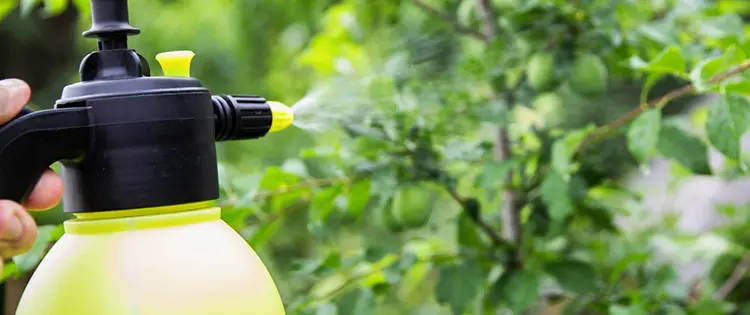Hey folks, Phil here.
Today, I want to discuss about what you might have in your medicine cabinet right now. Hydrogen peroxide.
You know it as the fizzy stuff you put on cuts and scrapes, but did you know it can be a game-changer in your garden too? That’s right, this common household item has some surprising benefits for your plants.
Allow me to enlighten you on the reasons why incorporating hydrogen peroxide in your garden deserves careful consideration.
Does Hydrogen Peroxide Hurt Plants?
I am attuned to the thoughts that traverse your mind at this very moment. “Phil, isn’t hydrogen peroxide used to kill bacteria? Won’t it harm my plants?”
Well, the answer is no, not if used correctly. Let’s get a bit scientific here. Hydrogen peroxide is simply water with an extra oxygen atom (H2O2). This extra oxygen atom is what gives hydrogen peroxide its beneficial properties.
But here’s the key: concentration matters. Just like too much water can drown your plants, too much hydrogen peroxide can harm them.
The hydrogen peroxide you find at the drugstore is usually a 3% solution, which is safe for plants when diluted. In fact, the United States EPA recognizes it as safe for plants, which is quite the seal of approval.
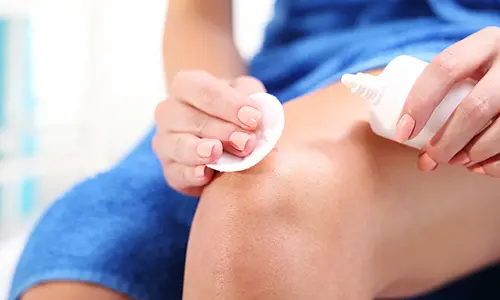
When we use hydrogen peroxide in the garden, we dilute it even further, making it especially safe. So, the answer to the question, “Does hydrogen peroxide hurt plants?” is a resolute no, provided the strength is sufficiently diluted.
Remember, folks, in homesteading, as in life, balance is key. Finding the perfect balance of hydrogen peroxide is key to providing your plants with a beneficial boost, as excessive amounts can lead to adverse effects.
Now, let’s delve into the proper techniques of utilizing hydrogen peroxide in our gardens. Stay tuned for further insights in the upcoming section!
Related: What Happens If You Sprinkle Cinnamon In Your Garden
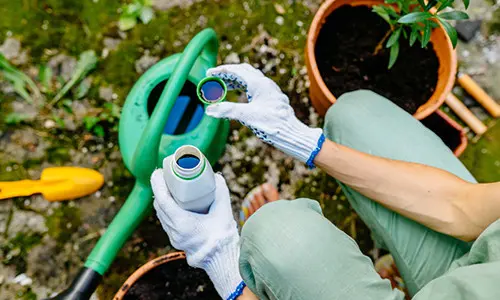
Benefits of Hydrogen Peroxide for Plants
Very well, now that we have ascertained that utilizing hydrogen peroxide correctly poses no harm to your plants, let’s delve into the array of benefits it brings forth. And trust me, there are plenty!
Pest Control
First up, pest control. For those who have embraced gardening for a considerable time, the relentless presence of pests is a familiar and vexing challenge.
But did you know that a simple spray of diluted hydrogen peroxide can help keep those pesky bugs at bay? It’s true! Hydrogen peroxide can kill insect eggs and larvae, helping to control infestations of common garden pests.
By adopting this natural and non-toxic approach, you can effectively nurture the well-being and liveliness of your garden.
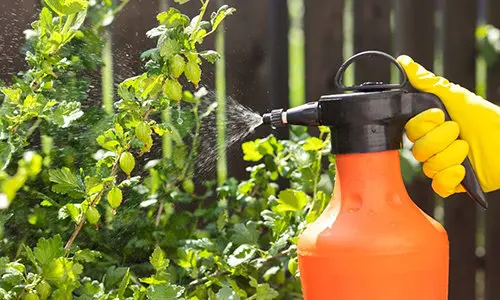
Root Rot Rescue
Let’s dive into the world of root rot, a common nemesis for many gardeners, especially when plants have been overwatered.
But hold on, there’s a silver lining here – hydrogen peroxide! This wonder solution breathes extra oxygen into your soil, warding off the anaerobic bacteria and fungi that are the culprits behind root rot.
A dash of hydrogen peroxide could be the lifeline your plants need to escape this dreaded disease.
Seed Saviors
Moving on, did you know hydrogen peroxide can be a guardian angel for your seeds too? It’s true!
Giving your seeds a pre-planting bath in a blend of hydrogen peroxide and water can fend off fungal foes and provide your seeds with a vigorous kick-off. Soak your seeds in this solution before planting, and you’re setting them up for a thriving life.
Related: How To Harvest Seeds From Plants You Are Already Growing
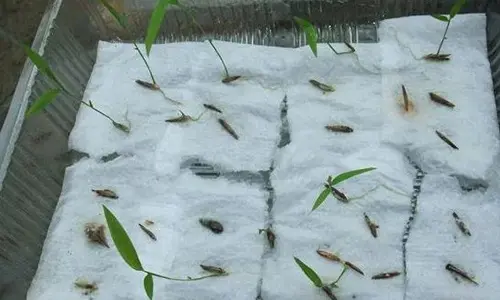
Foliage’s Best Friend
As a foliar spray, hydrogen peroxide is a champion in the fight against fungus that often plagues plant leaves. This can be a godsend for plants susceptible to fungal diseases. A swift spray session can keep your plants in the pink of health, free from any fungal fears.
Growth Galore
And now, for the grand finale – growth! That extra oxygen atom in hydrogen peroxide? It’s like a magic potion for your plants.
Oxygen aids plant roots in absorbing nutrients from the soil. By introducing a smidgen of hydrogen peroxide into your watering routine, you’re empowering your plants to soak up more nutrients.
The outcome? Speedier, healthier, and more vigorous growth.
So, folks, there you have it. Hydrogen peroxide isn’t just a first-aid kit staple. It’s a multifaceted marvel that can help you cultivate a healthier, happier garden. Give it a whirl and witness the transformation it can bring about!
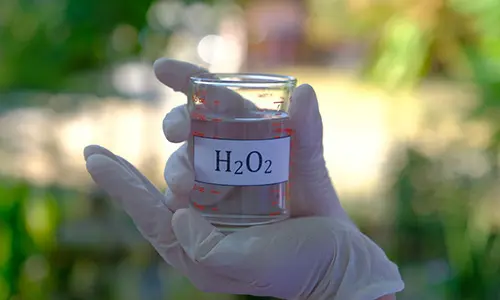
Harnessing Hydrogen Peroxide in Your Garden
Now it’s time to don our gardening gloves and delve into the practical side of using hydrogen peroxide in your garden. Remember, the secret sauce here is the right dilution and application.
- Step 1: Mastering the Art of Dilution – First order of business, diluting the hydrogen peroxide. For your day-to-day gardening endeavors, I recommend stirring in 1 teaspoon of 3% hydrogen peroxide into each cup of water. This concoction will serve you well for most applications. But when you’re up against root rot or fungal infections, you might need to bring out the big guns. In these instances, you’ll want to mix in 1 tablespoon of hydrogen peroxide for every cup of water.
- Step 2: The Application Adventure – Next up, it’s showtime for the solution on your plants. If you’re using it as a foliar spray to combat pests or treat fungal infections, simply spritz it onto your plant leaves. Make sure you cover all bases, as the hydrogen peroxide needs to make contact with the pests or fungus to work its magic. If root rot is your nemesis, water your plants with the hydrogen peroxide solution. Ensure you drench the soil around the roots thoroughly. When it comes to pre-treating seeds, immerse your seeds in the hydrogen peroxide solution, letting them bask in it for about 30 minutes before they make their journey into the soil.
- Step 3: The Reapplication Ritual – For pest control or treating fungal infections, you’ll need to reapply the solution every few days or post-rainfall. To boost plant growth, incorporate the diluted hydrogen peroxide into your regular watering routine.
Hydrogen peroxide, an unassuming staple in your home, can truly revolutionize your gardening game. From pest control and treating root rot to boosting plant growth and pre-treating seeds, it’s a versatile tool that can help you tackle common gardening challenges in a safe and natural way.
So, why not give it a try? Add a little hydrogen peroxide to your gardening routine and see the difference it can make. With a little care and attention, you can use hydrogen peroxide to grow a healthier, happier garden.
Happy homesteading, everyone!
You may also like:
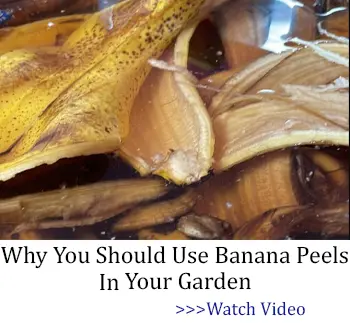 This Is Why You Should Have Charcoal Around Your Property
This Is Why You Should Have Charcoal Around Your Property
Similar to Morphine: The Best Natural Painkiller that Grows in Your Backyard (Video)
9 Best Plants That Naturally Repel Pests from Your Homestead
How To Make A Safe and Effective Organic Garden Pest Control Spray
This Is Why You Should Have Diatomaceous Earth Around Your Property

